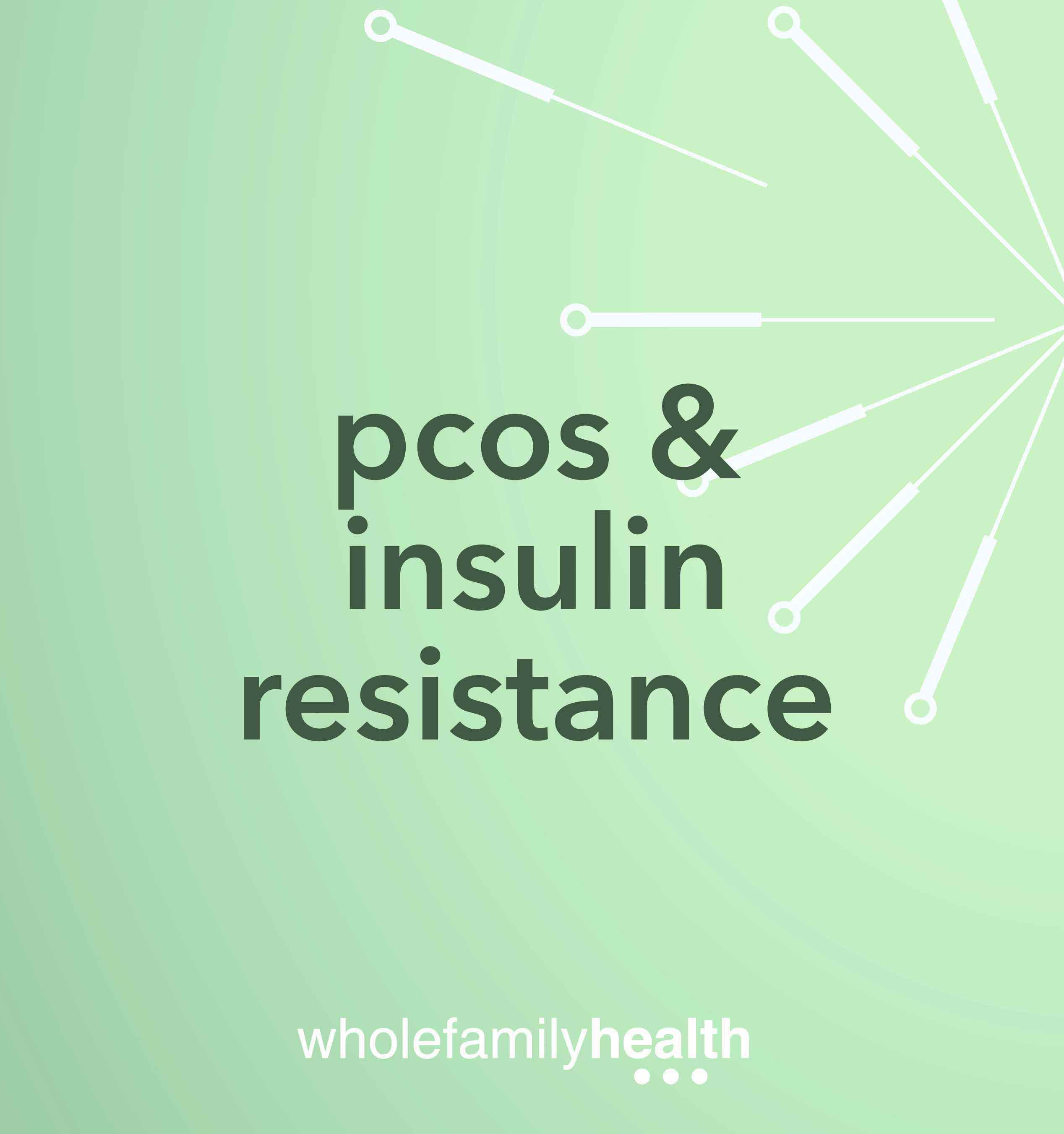PCOS & Insulin Resistance: 3 Steps to Overcome It
Posted by Catherine Woodlock

What is PCOS?
Polycystic Ovarian Syndrome (PCOS) is a hormonal imbalance that affects one in ten people. This imbalance of hormones can disrupt ovulation, possibly leading to what looks like a string of pearls on the ovaries under the ultrasound.
Also called hyperandrogenic anovulation, some people with PCOS have higher than normal levels of male hormones (androgens). Elevated androgens can play a role in blocking the release of the egg at ovulation and can lead to both poor egg quality and a less receptive uterine environment. These factors make PCOS one of the leading causes of infertility.
PCOS Includes symptoms such as:
- Irregular Menstruation
- Weight Gain
- Difficulties with Fertility
- Depression or anxiety
- Sleep Apnea
- Acne
- Hair Loss
- Increased Facial Hair Growth
- Cystic Ovaries
Insulin Resistance and How It Relates to PCOS
When we eat, our blood sugar levels rise and our pancreas responds by releasing insulin. The insulin locks onto insulin receptors, allowing blood glucose to pass into cells to be used as energy.
When blood sugar and insulin levels are chronically high, the body down-regulates the amount of receptors on each cell. This is called insulin resistance. It causes excess glucose and insulin to float around in the blood. The excess glucose is then generally stored as abdominal fat, leading to weight gain and inflammation.
When insulin rises, it creates a cascading effect that gives the ovaries a signal to release testosterone. This creates the high androgenic environment that we spoke about earlier.
Additionally, excess body fat causes increased levels of leptin in the blood, the hormone which is responsible for appetite regulation. Excess leptin also negatively impacts the hormonal environment and impedes ovulation.
High Blood Glucose Levels and Inflammation
Chronic inflammation can also interfere with ovulation and disrupt hormone receptors, stimulating adrenal gland androgens. This can be due to immune dysfunction, such as an autoimmune condition, which can also be impacted by excess glucose in the system.
As I understand, glucose molecules are relatively large and complex. When excess glucose molecules float around in the blood, they can damage the body tissues, causing the immune system to not recognize these damaged body tissues as ‘self’. This then leads to chronic inflammation and an overactive immune system, or autoimmunity, which in turn is known to impact PCOS.
3 Steps to address Insulin Resistance
- Change up your diet. Avoid refined carbohydrates such as sugar, breads, pastas and baking. Try to eat low glycemic index carbs like vegetables and whole grains. Incorporating a meal plan that allows for meals and snacks every 3-5 hours can help to stabilize blood sugar. Eat plenty of micronutrient rich greens and vegetables and restrict your fruit intake, as it is high in sugar content. Avoid milk and dairy and ensure that you are eating small portions. All of these adjustments can help to moderate blood glucose levels and insulin resistance.
- Change up your lifestyle. Exercising and stress reduction are key in helping to treat PCOS. We recommend exercising vigorously for 30 minutes, 6 days per week to get the heart rate up. It is also essential to incorporate stress reduction practices into everyday life. This could look like a mindfulness based meditation practice or the exploration of something that brings you into a flow state, or into a state of joy and satisfaction.
- Seek preconception Traditional Chinese Medicine care. Acupuncture 2-3 times per week can help to moderate PCOS by facilitating weight loss, reducing stress, increasing insulin sensitivity, reducing blood glucose and lipid levels, regulating endocrine and metabolic disturbances and improving blood flow to the ovaries. Herbs can also be beneficial in the treatment of both the reproductive and metabolic dysfunction associated with PCOS. Herbs and acupuncture work hand in hand to increase the overall effectiveness in the treatment of PCOS. Finally, an individualized supplement regimen can help to optimize the function of the reproductive system in women with PCOS.
Please send us a message if you would like to book in with one of our women’s health specialists to discover your individualized treatment plan.
